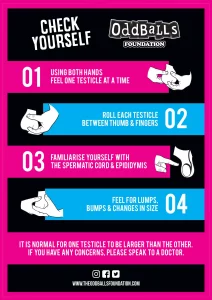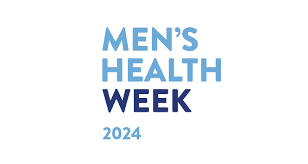Men’s health is something that is super important but often overlooked.
Why focus on men’s health?
Men, especially young men, can often be known to neglect their health. Some studies have shown that men are less likely to visit the doctor, talk about their health issues, or seek help when they need it. Men’s Health Week aims to change this by raising awareness and encouraging all men to take charge of their well-being.
This Year’s Theme
This year’s theme is all about sharing. If an issue is spoken about, then this can encourage others to seek help. You may remember in the news in January, that King Charles was admitted to hospital for a procedure on his prostate. This is just one example of a health concern that is unique to men. Speaking about health issues openly can encourage others to seek help. On the day after King Charles shared this news, there were 16,410 visits to the relevant NHS advice page, compared with just 1,414 visits the previous day! (Menshealthforum.org, 2024)

Men’s health issues
Below are just a few health issues that men may face.
Checking yourself
Men’s Health Week is a great time to talk about something really important: checking yourselves for lumps. It might feel a bit awkward, but it’s a crucial step in taking charge of your health. Testicular cancer is the most common cancer in young men aged 15-35, but it’s highly treatable when caught early. Regular self-checks can make a big difference.
It’s really important to become familiar with body, to get to know what is ‘normal’. This way, you will be able to recognise if there are any changes.
Why not scan the QR code and take a look at Oddballs ‘Check yourself guide’


You should see your GP or your local sexual health clinic if you have any changes that include pain, discharge or unusual lumps. Health care professionals are used to answering lots of different questions and concerns about the body. If you would like to speak to a school nurse please contact us via Chat Health.
The Brook website has lots of advice about how to check yourself for lumps and bumps, along with the NHS Choices website.
Gaming
While anyone can enjoy gaming, men’s health week is a great time to talk about the impact of gaming on your health. Gaming is a big part of many young people’s lives. While it’s a fun and engaging hobby, it’s important to understand how it can affect your health—both positively and negatively. While gaming can be good for your cognitive skills, coordination and social connections, too much gaming can also lead to poor posture, eye strain, sleep disruption, isolation and gaming addiction.
Tips for healthy gaming: 
- Set limits. Try to keep it to an hour or two day and make sure you have time for other activities.
- Take regular breaks! Every 20 minutes, take a 20-second break and look at something 20 feet away. Stand up, stretch, and move around every hour.
- Create a comfortable environment. Use a comfortable chair, keep your screen at eye level, and maintain good posture.
- Balance with other activities. Make time for physical and social activities, hobbies and school work. A well-balanced lifestyle is important for overall health.
- Monitor your mood. Pay attention to how gaming is affecting you. If you notice you are becoming stressed or frustrated or if it is negatively impacting your mood, it may be time to cut back.
If you are worried about how much you are gaming then you should seek help from you GP, your school nurse via Chat Health or YoungMinds.
Mental Health
Mental health is just as important as physical health, yet many of us find it hard to open up about our struggles.
Mental health problems affect many people, and men are no exception. In the UK, about one in eight men has a common mental health problem like depression, anxiety, or stress (mentalhealth.org.uk).
Society often expects men to be tough and resilient, which can make it hard to talk about feelings. This stigma can lead to men suffering in silence, rather than seeking help.
Poor mental health can affect your schoolwork, relationships, and overall happiness. It’s important to address these issues early on to prevent them from escalating. To learn more about mental health visit our emotional health pages.
If you are worried about your mental health, speak up. You can speak confidentially to a school nurse on Chat Health . Or speak to your GP. You can also get support from Mindworks Surrey.
Written by: Sophie Dewey School Nurse



Recent Comments